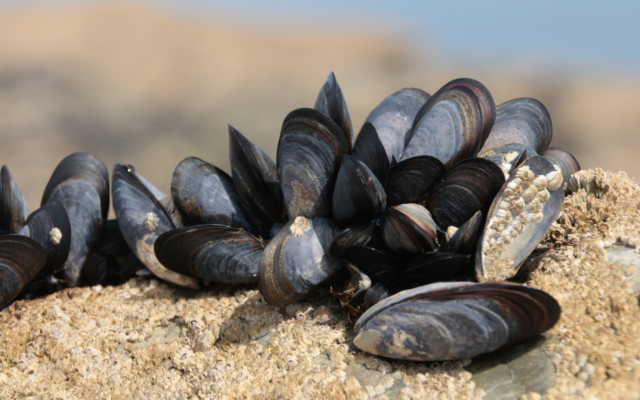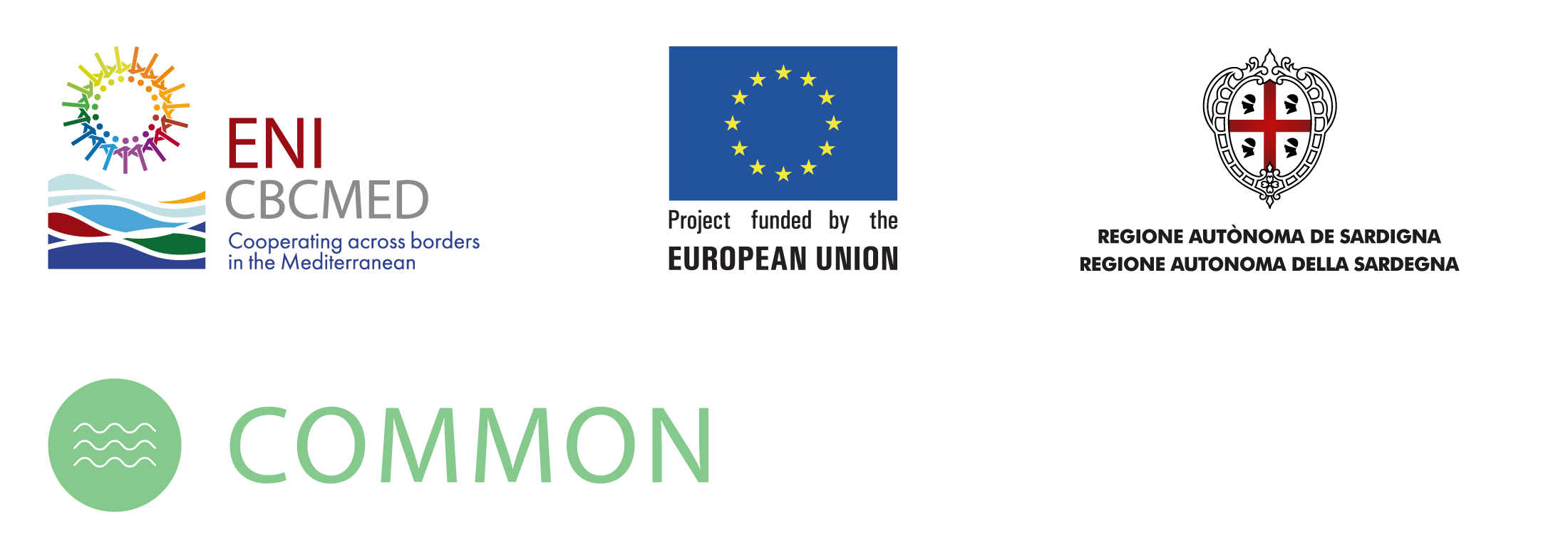FISH SPECIES
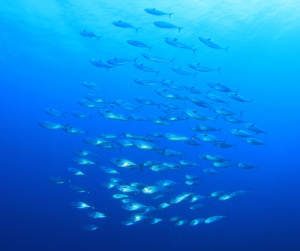
Mullet, sardines, mussels and bogues: four of the 116 Mediterranean species affected by the marine litter. They live in the Mediterranean Sea and can provide valuable information on its health. These are the sentinel species that will end up under the lenses of scientists to evaluate the presence and the impact of marine litter on biodiversity.
COMMON will start sampling activities and carry out ecotoxicological investigations in the four species (ingestions of plastic, contaminants, biomarkers)
The monitoring activities will facilitate the identification of marine litter sources in order to plan effective mitigation actions in the areas involved, assess their impact on biodiversity and develop effective strategies to preserve it.
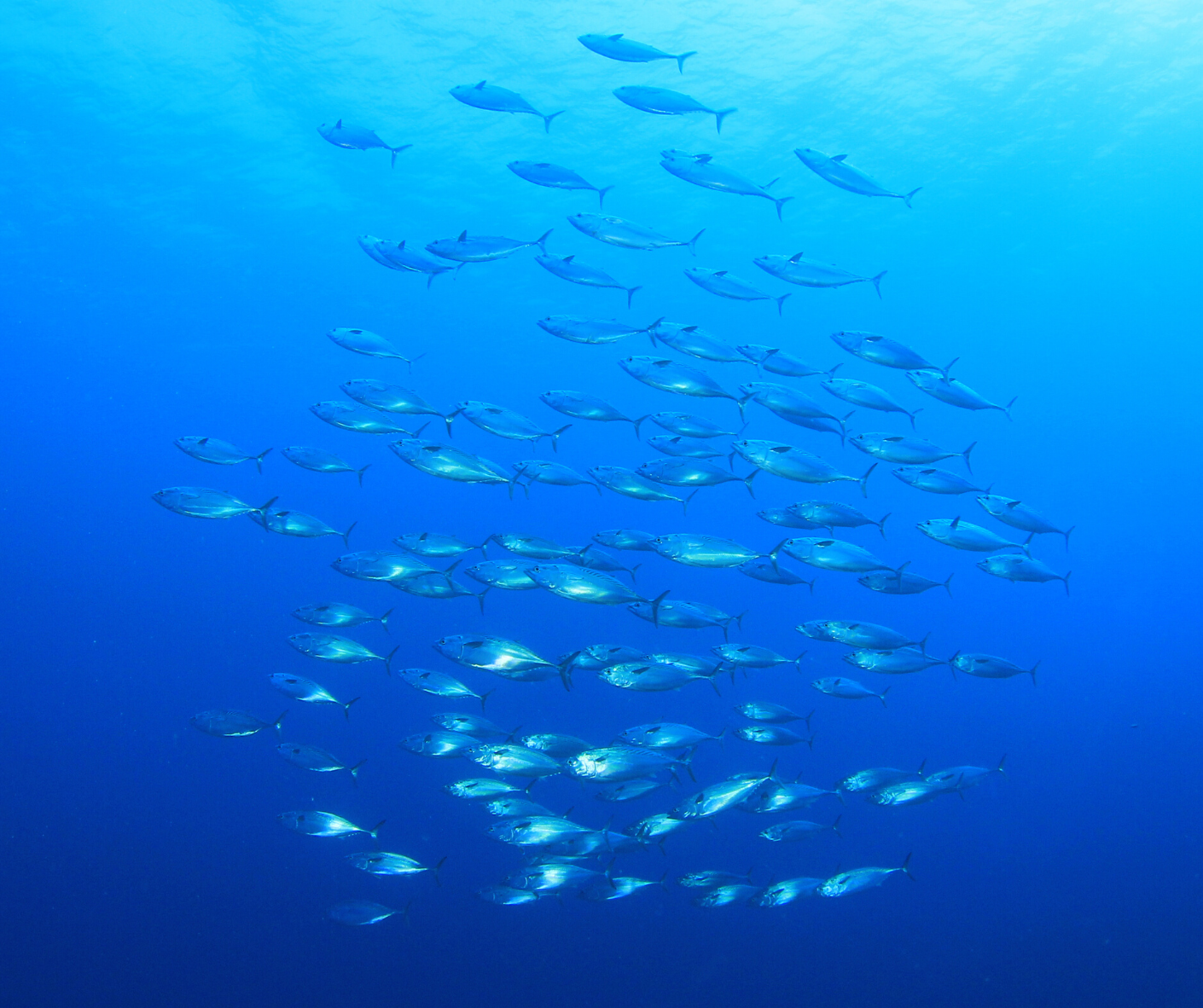
Mullet, sardines, mussels and bogues: four of the 116 Mediterranean species affected by the marine litter. They live in the Mediterranean Sea and can provide valuable information on its health. These are the sentinel species that will end up under the lenses of scientists to evaluate the presence and the impact of marine litter on biodiversity.
COMMON will start sampling activities and carry out ecotoxicological investigations in the four species (ingestions of plastic, contaminants, biomarkers)
The monitoring activities will facilitate the identification of marine litter sources in order to plan effective mitigation actions in the areas involved, assess their impact on biodiversity and develop effective strategies to preserve it.
Something more about the species
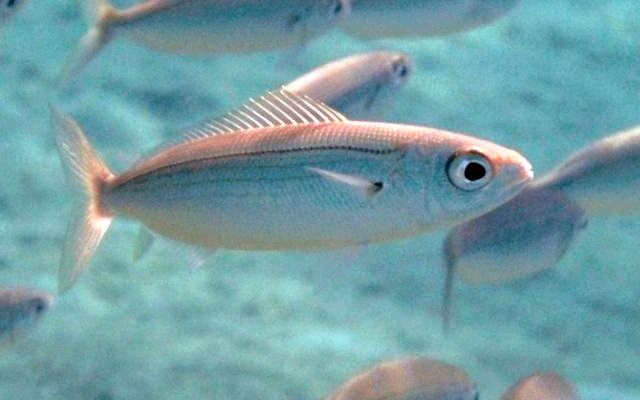
Bogue (Boops boops): do not travel over large distances and is representative of fishing resources usually exploited by artisanal fishery. In addition, as this species feeds on different types of bottoms including sand, mud, rocks and seagrass beds, performing vertical migrations at depths ranging from 0 to 350 m, it could be representative of several marine compartments. The bogue stands out as a suitable bioindicator due to its ubiquitous distribution in the Mediterranean, the small size of its gut, and the high frequency of occurrence of microplastics in its digestive tract.
Sardina (Sardina pilchardus): are small pelagic fish distributed in all Mediterranean open waters, are proposed as sentinel species because they are filter feeders and may potentially be impacted by microplastic in the water column. They are also among the most important commercial fishing resources of the Mediterranean Sea. They are characterized by a relatively short life cycle and fast growth of the early stages where changes in habitat conditions may influence survival at early life stage.
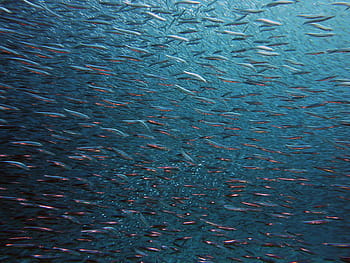
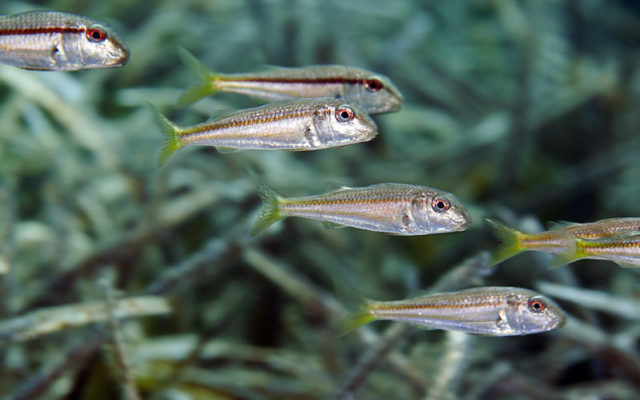
Red mullet (Mullus barbatus): live on muddy and sandy bottom feeding mainly on benthic species. Red mullet inhabits the whole Mediterranean Sea and, because of their close association with the sea bottom, they are strongly exposed to the ingestion of micro-debris.
Mussel (Mytilus galloprovincialis): can be selected as a spot-scale bioindicator of microplastic in Mediterranean coastal shore. It is therefore an internationally accepted sentinel early warning species for monitoring marine pollution, which is used in both the U.S. Mussel Watch and for the assessment and control of pollution in the Mediterranean region.
